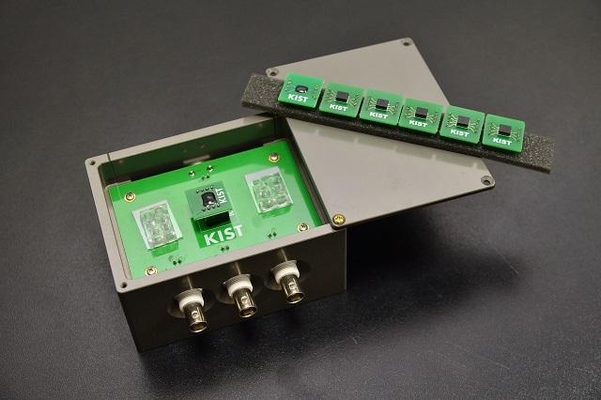Input 2020.12.24 12:00 | Revision 2020.12.24 14:36
Blood diagnostic accuracy 30%… Less cancer-related substances in urine
High-sensitivity sensor improves detection performance and AI analyzes it precisely

The Korea Institute of Science and Technology (KIST) announced on the 24th that the research team of Dr. Lee Kwan-hee Biomaterials Research Center has developed a new cancer diagnosis technology that combines ultra-sensitive biosensor and artificial intelligence (AI) with the research team of Professor Jeong In-gap of Seoul Asan Medical Center.
Prostate cancer still has a blood test diagnosis technology, but the accuracy is only 30%. For a diagnosis close to 100%, a biopsy, an invasive method, is required. Urine also contains several types of prostate cancer biomarkers (substances in the body that determine whether or not the disease has occurred), but the amount was not used for diagnosis.

When the research team used this technology to analyze urine samples from 76 patients or the general public, they succeeded in distinguishing patients with an accuracy of 95.5%.
As the next step, the research team plans to carry out clinical trials with 500 subjects (patients or the general public) to further improve accuracy and commercialize them in 2022-2023.
Professor Jeong said, “If it is commercialized, it will be possible to dramatically reduce medical expenses and the burden of medical staff by minimizing unnecessary biopsy and treatment.” Dr. Lee expected that “it could be used for precise diagnosis of other carcinomas.”
The research results were published in the latest issue of ACS Nano, an academic journal published by the American Chemical Society (ACS).
